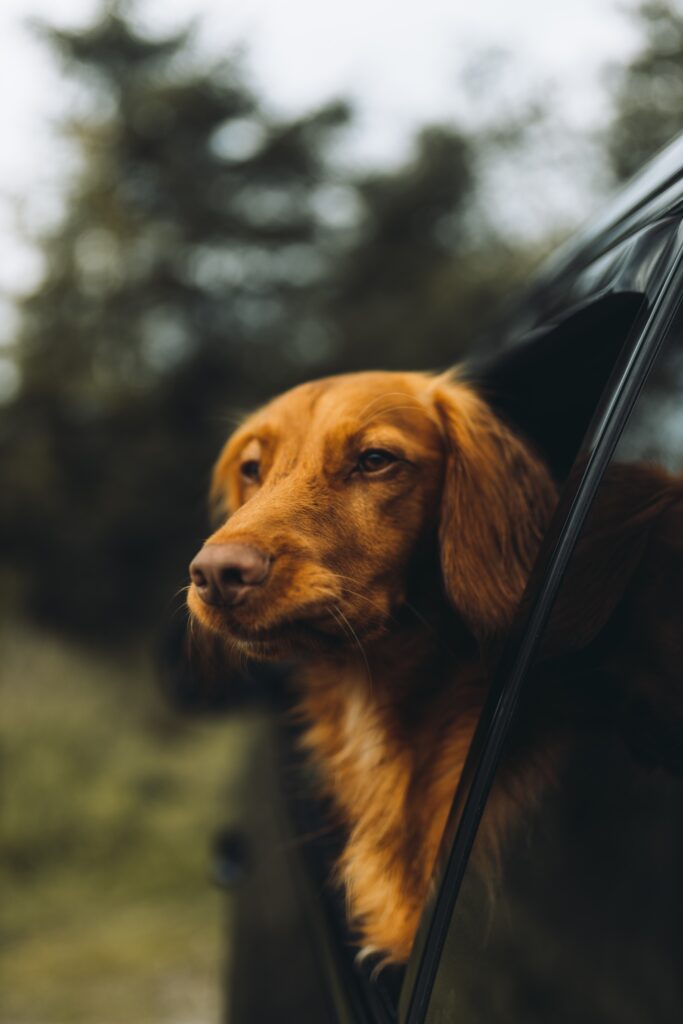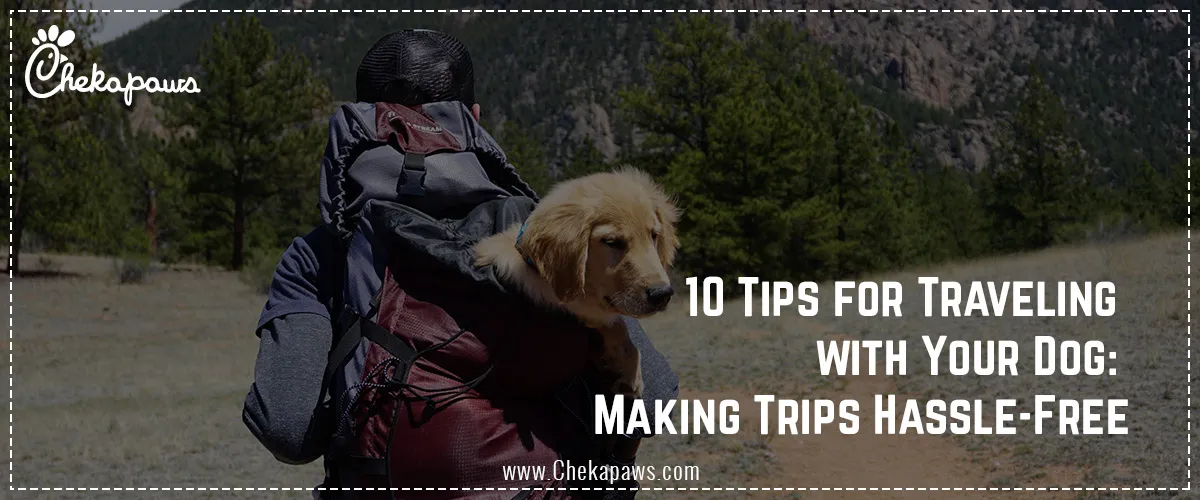10 Tips for Traveling with Your Dog: Making Trips Hassle-Free
Table of Contents

Plan Ahead
Look into the accommodations, modes of transportation, and activities that are pet-friendly where you plan to go. Verify if there are any particular guidelines or requirements for taking pets on trips, such as vaccination standards or breed limitations.
Veterinary visit
Take your dog to the vet for a checkup and to make sure their shots are current before you depart. If necessary, obtain a health certificate, and confirm that your dog is microchipped and sporting a collar bearing the most recent contact details. Before you make any plans, be sure to speak with your veterinarian. Make sure that your pet has received all required vaccinations. You can seriously consider taking your pet on a trip if your veterinarian says it’s okay.
Pack Dog Essentials
To keep your dog comfortable and relieve stress, bring enough food, water, treats, medications, and familiar objects like a bed or blanket. Bring trash bags, a leash, and any other items you might need, like vaccination records.
Choose Pet-Friendly Transportation
Make sure your dog is securely restrained in a crate or with a harness if you’re driving. Never leave your pet locked inside a vehicle, especially during the summer when the air conditioning might not be working. Never leave your dog alone in a car, even one with a cracked window, even if you’re just getting petrol. Instead, always keep an eye on your dog. Check the airline’s pet policy and requirements before flying if you plan to bring a dog in the cabin or as cargo.
Plan for Bathroom Breaks
Dogs require frequent bathroom breaks, so schedule breaks during car trips and look up pet-friendly rest stops nearby. Never leave your dog alone in the car, especially during the summer. Simply put, adult dogs typically need to go to the toilet three to five times per day, with most veterinarians advising a maximum window of between six and eight hours.
Your Dog Should Be Exercised
The answer varies from dog to dog and depends on breed, age, and health, just like it does for people. To remain calm and relaxed while travelling, dogs need to be exercised. Take your dog for a walk or play fetch before your trip to help them burn off energy and reduce anxiety.
Practice Crate Training
In order to make your dog feel safe and secure while travelling in a crate, practise crate training at home. To get your dog ready for longer journeys, gradually extend the amount of time he or she spends in the crate. If your pet hasn’t been trained to use a crate, you should tether them inside the vehicle to stop them from moving around excessively or jumping in the front seat. You can purchase a pet seatbelt to keep your dog secure while you concentrate on driving. It will fasten to the dog’s harness or collar.
Be Mindful of Your Dog’s Anxiety
Please be patient and understanding as dogs can become anxious while travelling. Assure your dog, use calming methods like aromatherapy or a calming collar, and think about asking your veterinarian if your dog should take anti-anxiety medications.
Follow Local Rules and Etiquette
When travelling with your dog, abide by all etiquette and rules in the area. Always pick up after your dog, use a leash when necessary, and be aware of nearby people and animals.
Safety First
Always put your dog’s safety first. Never leave your dog unattended in a strange environment, avoid feeding your dog right before travel to lower the risk of motion sickness, and make sure your dog is properly identified in case they get lost.
You can make travelling with your dog hassle-free and enjoyable for both you and your canine companion by using the advice in this article!








One comment